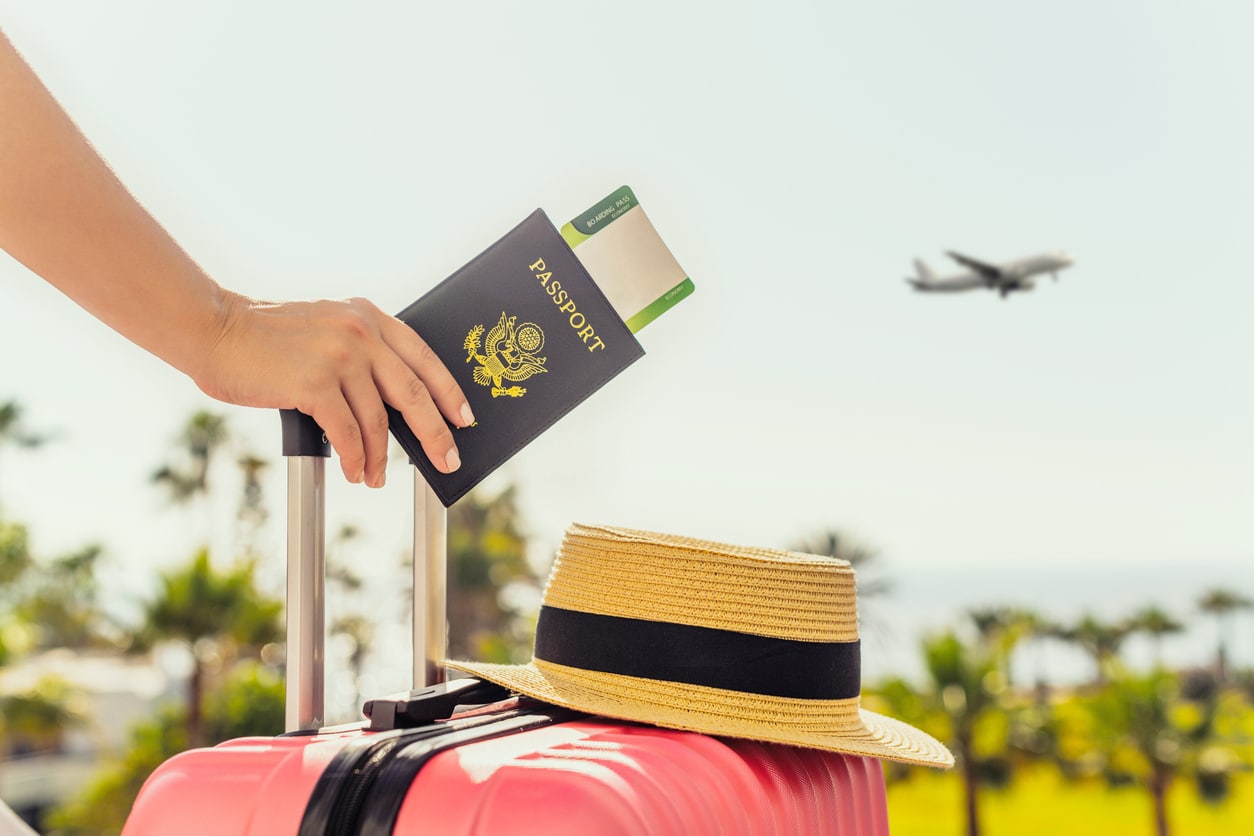Where Is Your Tax Home When You Move Abroad as an Expat Parent?

As an expat parent, your tax home is generally the main location of your work or business in the foreign country where you’ve built real economic and social ties. Greenback research shows that most expat parents who properly set up a foreign tax home can exclude up to $130,000 of their foreign income from U.S. taxes in 2025 — often saving thousands in federal taxes.
The key difference for parents is that their move abroad must demonstrate independent economic substance beyond just following their child. While family considerations can motivate their relocation, the IRS requires proof that they’ve built their own legitimate life in the foreign country.
When you establish a qualifying foreign tax home, you become eligible for the Foreign Earned Income Exclusion (FEIE) and potentially the Foreign Tax Credit. Most expat parents using these benefits end up owing $0 in US federal income tax.
Can Parents Establish a Tax Home Just by Following Their Child Abroad?
No, simply following your child abroad doesn’t automatically establish a foreign tax home. The IRS requires genuine economic and social connections to your new country that extend beyond parental support.
Your relocation must demonstrate independent substance. This means securing employment, starting a business, or engaging in significant volunteer work. Even without traditional employment, managing substantial investments or property abroad can support your tax home claim.
The duration matters significantly. A temporary visit to support your child through a semester abroad won’t qualify, but relocating for their entire university degree often will. The IRS looks for indefinite rather than clearly temporary arrangements.
Your housing arrangements provide crucial evidence. Signing long-term leases, purchasing property, or establishing permanent residence demonstrates commitment beyond short-term family support.
How Long Must You Stay Abroad to Establish a Tax Home?
There’s no minimum time requirement to establish a tax home, but your presence must appear indefinite and substantial. The IRS evaluates the totality of your circumstances rather than counting days.
For expat parents, successful tax home establishment typically requires at least one full year abroad with evidence of ongoing commitment. A two-year relocation to support your child’s master’s degree program often qualifies, while a six-month visit rarely does.
Your intentions matter more than predetermined timelines. Even if you privately expect to return when your child’s time abroad ends, your actions should demonstrate an open-ended commitment to life in the foreign country.
Document your decision-making process. Keep records showing you researched long-term housing, sought employment opportunities, and planned for extended residence rather than temporary family support.
Stop guessing. Download the expert guide now.
"*" indicates required fields

What Activities Establish a Foreign Tax Home for Parents?
- Economic activities carry the most weight with the IRS. Employment, business ownership, or substantial volunteer work in your host country demonstrates legitimate reasons for your presence beyond family considerations.
- Professional activities strengthen your position significantly. This includes consulting work, freelance projects, starting a local business, or obtaining professional licenses in your new country.
- Community involvement provides supporting evidence. Join local organizations, participate in cultural activities, establish healthcare relationships, and develop friendships that extend beyond your child’s social circle.
- Financial infrastructure demonstrates your commitment. Open local bank accounts, obtain local insurance policies, secure utility accounts in your name, and establish credit relationships with local institutions.
- Educational pursuits can support your tax home claim. Taking language classes, pursuing certifications, or attending local educational programs shows integration beyond temporary residence.
Does Maintaining a US Home Disqualify Your Foreign Tax Home?
Maintaining a US home doesn’t automatically disqualify your foreign tax home, but it does complicate your situation. The IRS examines where your primary economic and social connections lie.
If you rent out your US home and establish your primary residence abroad, you can often maintain both properties without losing your foreign tax home status. However, spending significant time in your US home or treating it as your primary residence weakens your foreign tax home claim.
The tax home test focuses on where you conduct business and maintain your primary economic activities. Your family home location, while relevant, isn’t determinative.
Document how your foreign residence has become your primary base of operations. Show that your important mail goes there, you’ve registered to vote locally (where applicable), and you conduct your primary business activities from the foreign location.
What About the Principal Place of Abode Test?
The principal place of abode test examines where your main home is located based on social and economic connections. For expat parents, this can be more challenging than the tax home test.
Unlike tax home, which focuses on business activities, your abode considers where you maintain your strongest personal connections. Having your child abroad doesn’t automatically shift your abode to the foreign country.
The IRS weighs multiple factors: where you maintain your closest family relationships, social connections, recreational activities, and personal business dealings. Building genuine local friendships and community ties strengthens your foreign abode claim.
Time allocation provides important evidence. Spending the majority of your year in a foreign country while maintaining only brief visits to the US supports your foreign abode position.
How Do You Document Your Foreign Tax Home Status?
- Maintain comprehensive records from the beginning of your foreign residence. Don’t wait until the IRS questions your position to start gathering evidence.
- Employment documentation includes work contracts, business licenses, professional registrations, and evidence of local business activities. Even volunteer work should be formally documented with organizational letters confirming your involvement.
- Housing records prove your residential commitment. Keep lease agreements, property purchase documents, utility bills, insurance policies, and evidence of home improvements or long-term maintenance arrangements.
- Financial documentation shows your economic integration. Preserve bank statements, local credit arrangements, insurance policies, and evidence of local investment activities.
- Community involvement records demonstrate social integration. Document memberships in local organizations, participation in cultural events, and evidence of local friendships that extend beyond your child’s connections.
Can You Use Both FEIE and Foreign Tax Credit as an Expat Parent?
Yes, you can strategically combine the Foreign Earned Income Exclusion and Foreign Tax Credit on different types of income to maximize your tax savings.
Use FEIE for your foreign earned income (salary, self-employment income) up to the $130,000 limit for 2025. Apply the Foreign Tax Credit to passive income like rental property income, dividends, or amounts above the FEIE limit.
If you use FEIE for any earned income, you cannot claim FTC for foreign taxes paid on that same excluded income. This restriction often makes combining strategies less beneficial than choosing one or the other.
For parents with investment income from US sources, the Foreign Tax Credit provides better benefits than FEIE, since you can’t exclude US-source income under FEIE anyway.
What Mistakes Should Expat Parents Avoid?
- Don’t rely solely on your child’s presence to justify your foreign tax home: Establish your own independent economic and social connections that would justify your residence even without your child.
- Avoid maintaining too many US connections while claiming foreign tax home status: This includes keeping US driver’s licenses, voter registrations, or professional licenses that you don’t actively need.
- Don’t ignore state tax implications: Successfully establishing a foreign tax home can help demonstrate that you’ve severed ties with your former US state, potentially eliminating state income tax obligations.
- Avoid inadequate documentation: Upon moving abroad, start maintaining comprehensive records immediately rather than trying to reconstruct your position later.
- Don’t assume your temporary move will qualify: If you’re openly planning to return as soon as your child’s time abroad ends, you may struggle to establish a legitimate foreign tax home.
What’s Your Next Step?
For complex situations involving significant US connections or substantial income, consider consulting with expat tax professionals who can analyze your specific circumstances and help optimize your tax position.
File Form 2555 to claim the Foreign Earned Income Exclusion if you qualify, and use Form 1116 for the Foreign Tax Credit when appropriate.
Remember that establishing a foreign tax home as an expat parent requires a genuine commitment to life abroad beyond just supporting your child. With proper planning and documentation, you can achieve significant tax savings while providing valuable support during your child’s international experience.
Contact us, and one of our customer champions will gladly help. If you need specific advice on your tax situation, click below to get a consultation with one of our expat tax experts.
This article is for informational purposes only and should not be considered tax advice. Individual circumstances vary, and you should consult with a qualified tax professional for advice specific to your situation.



